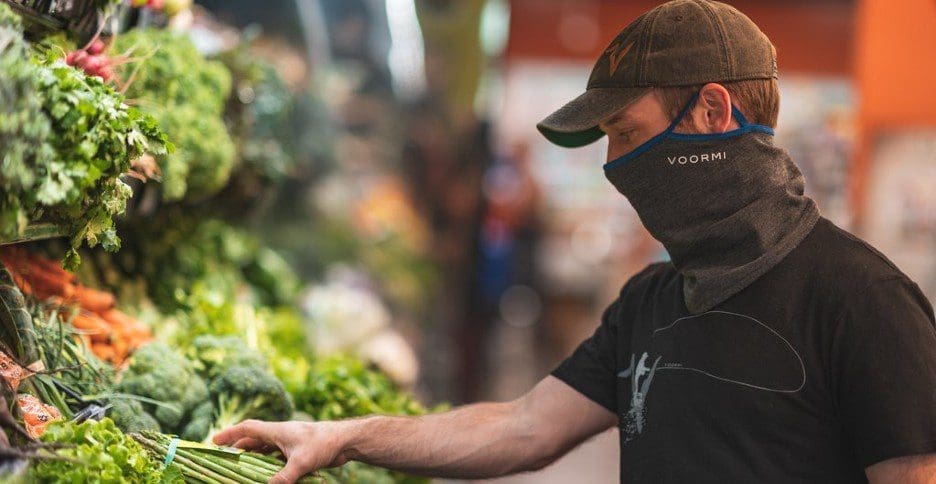 Covid-19 has made face masks 2020’s most required accessory.
Covid-19 has made face masks 2020’s most required accessory.
Fashionable or not, public health officials around the world now agree: covering the nose and mouth helps reduce the spread of Covid-19. So, we need to cover up.
For most of us that means a comfortable, protective covering for everyday use. Something washable and re-useable is a real win over single-use and disposable.
Wool Face Masks: Natural, Breathable, Re-Useable
Wool is unique among fibres in that, thanks to the structure of its fibres, it naturally wicks moisture away from the skin and allows the skin to breathe. Research has shown how superfine Merino wool operates as a dynamic buffer, regulating humidity and temperature near the skin – read more about how that works here. The result is: you feel drier and more comfortable.
Many of the wool masks now on the market are using Merino wool next to the skin, or a Merino blend. These wools are soft, and many reviewers have commented how much they like them. This is important – we all know how unbearable face masks can sometimes feel.
In addition, wool face masks are washable by hand – we know that even simple hand soap and water kills the virus. So, there’s no need to risk felting with machine washes in hot temperatures.
Demand Surges for Wool Masks
With wool such an important product for Australia and New Zealand, it’s no surprise that many face masks are made of wool from one of those two countries.
Woollen face mask suppliers in New Zealand last week spoke of being “slammed with orders” as a second wave looms. The NZ Farmers Weekly reports that the brand True Fleece, www.truefleece.co.nz/ went from from selling a few Merino masks per day to hundreds. Merino supply is not a problem, says owner Carl Uren. The small team his working flat out to meet demand.
Another NZ based company, Lanaco, www.lanaco.co.nz/index.cfm/products/covid-19-masks is also seeing demand surge for its specialist wool protective mask filters.
100% Wool, 100% Local
The New Zealand wool mask makers are seeing a demand not only for wool, but for a wool face mask that’s 100% NZ.
A similar trend is seen in the US where Maine-based Rambler’s Way offers a wool blend face mask that’s “100% Grown and Sewn” in the USA. www.ramblersway.com/men-womens/rambouillet-merino-wool/woolcotton-mask
Why Aren’t More Masks Made of Wool?
Making things out of wool is labour intensive, and requires skill, which drives the price up. Wool needs to be treated right and that can take time, and expertise. Synthetic fabrics can cost as much as 5% of what a quality Merino wool fabric costs.
But, as we are beginning to discover thanks to Covid, some things may well be worth paying more for.
Using a fabric that won’t contribute to microplastic pollution, for example. (This article goes into more depth about the effect of disposal masks on the environment.) Or supporting small and local businesses. Deciding that there’s a time to invest in a quality product, and where health and comfort concerns come in, that time may well be now.
Or even – all of the above.
Note: we don’t endorse or receive any benefit from linking to the brands or products in this article. If you’re struggling to find wool face masks where you live, drop us a line at iwto@iwto.org and we’ll do our best to help.
Image: Voormi wool blend gaiter, voormi.com/products/everyday-gaiter
